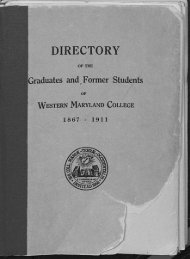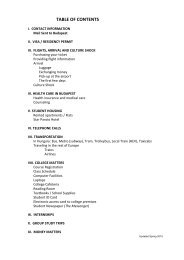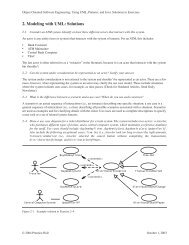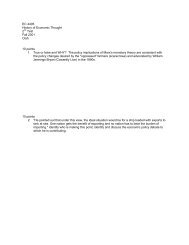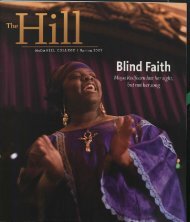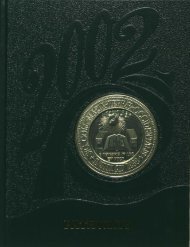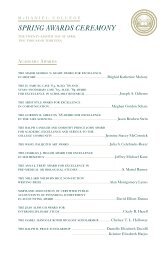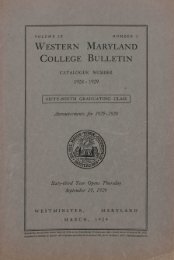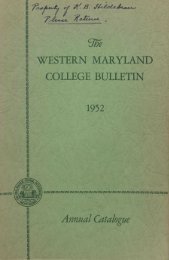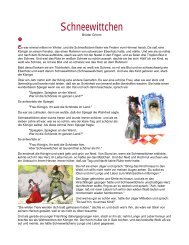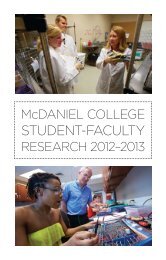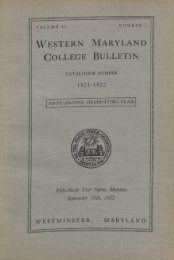Catalog, 1931 - Hoover Library
Catalog, 1931 - Hoover Library
Catalog, 1931 - Hoover Library
Create successful ePaper yourself
Turn your PDF publications into a flip-book with our unique Google optimized e-Paper software.
36 SIXTY-FOURTHANNUALCATALOGUE [19303. PLANT PHYSIOLOGY.-A study of the physiological phenomena associatedwith nutrition, absorption, respiration, transpiration, growth, etc. inplants. The laboratory work consists both of experimental problems designedto test these phenomena and of a study of some details of plant anatomy froma physiological point of view. Prerequisite, Biology 4. Elective for Juniors.Two class periods and one three-hour laboratory period a ioeek; Credit,3 hours.4. GENERALBOTANY.-A study of the structure and reproduction oftypical plants from all phyla, with special emphasis on the flowering plants.Considerable time in the Spring is given to the collection and study of localflora. Elective for Sophomores.Two class periods and one three-hour laboratory period a week. Credit,3 Iiours,5. INVERTEBRATEZOOLOGy.-Morphological and systematic study of representativeforms from the various phyla of invertebrate animals. Special attentionis given to fauna of local interest, both terrestrial and fresh water andmarine forms. Elective fer Sophomores.3 hours.Two class periods and one three-hour laboratory period a week. Credit,7. VERTEBRATEMBRYOLOGY.-Astudy of comparative vertebrate developmentas seen in frog, chick, and pig. The course includes training in thetechnique of making premanently mounted serial sections of embryos. Electivefor Seniors.Two three-hour laboratory periods and one class period a week. Credit, 3hours.8. COMPARATIVE ANATOMYOFVERTEBRATES.-Asystematic comparison ofthe gross anatomy of type specimens from the fishes, amphibia, reptiles, birds,and mammals to show both fundamental homology and individual adaptation.Prerequisite, Biology 7. Elective for Seniors.Two three-hour laboratory periods and one class period a week. Credit, ahours.9. MICROBIOLOGY.-Anintroductory course giving training in bacteriologicaltechnique and sanitation, with some study of yeasts and molds. Morphologicaland physiological characteristics of ordinary types of bacteria leadingto their indentification. Bacteriological analysis of milk and water. Bacteriologyof foods. Elective for Juniors. (Required of Juniors in Home Economies.)Six hours of laboratory and class work a week, Credit, 3 hours.10. ANIMAL PHYSIOLOGY.-The study of the mechanics of the animalorganism, particularly the mammal; its use of food, its response to stimuli,its self regulation, foods, digestion, absorption, circulation, respiration, excretion,muscular action, nervous coordination, etc. from a physical and chemicalpoint of view. Laboratory work consists -mostly of dissection of a mammal.



